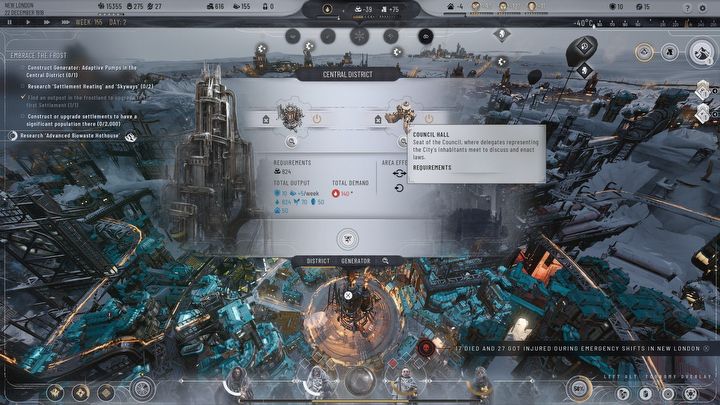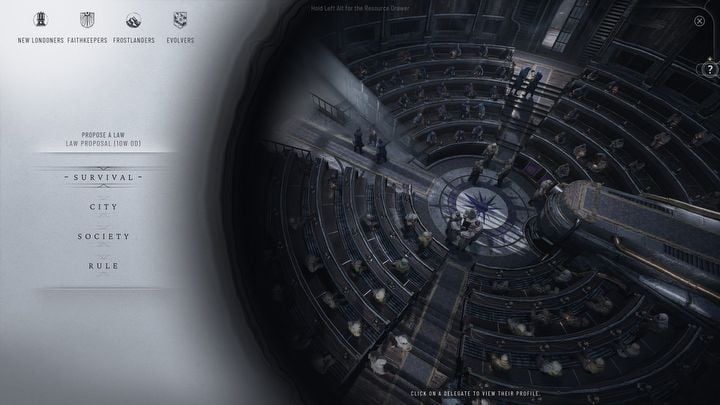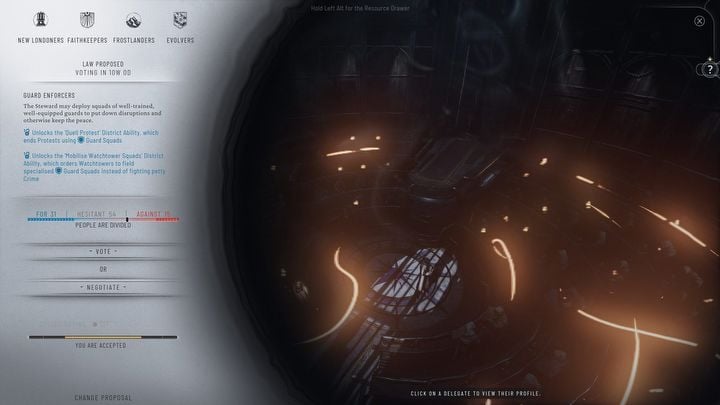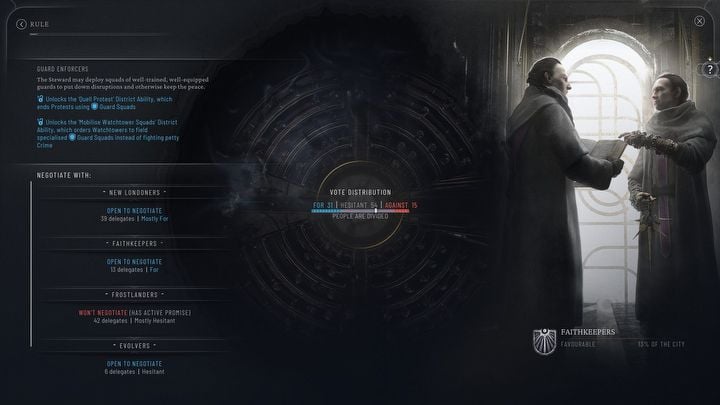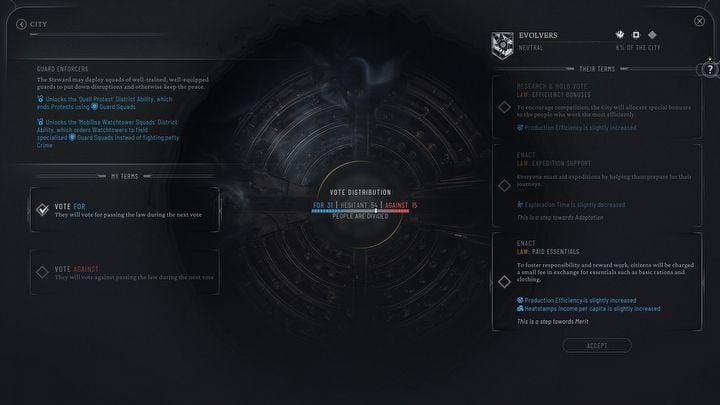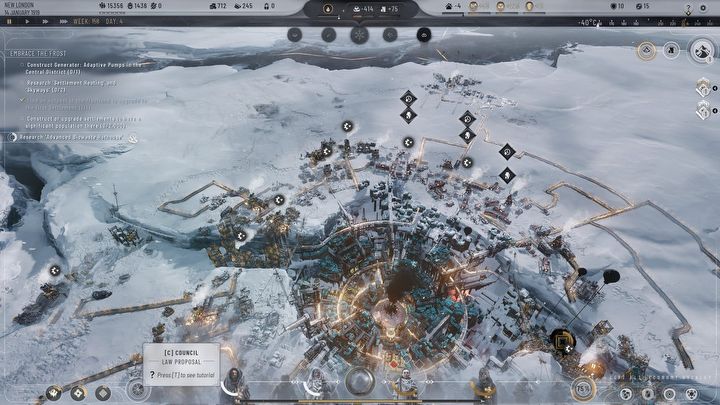Frostpunk 2: Tips for the Council
The Council is the main political body that regulates legislation in Frostpunk 2. On this page, we will present you with a collection of tips and instructions to help you get oriented to the city's political scene.
The City Council is the main mechanic related to politics in Frostpunk 2. From time to time, you will visit the council chamber during the game, where council members will vote on the next laws regulating life in the city. On this guide page, we will try to explain the rules of the Council to you.
How to build a City Council?
Before the first sessions even begin, your task will be to construct an appropriate building. You can find it under the "Build Buildings" icon in the lower right corner of the game screen, in the "Centre" tab. After selecting the Council building, you can place it in the city's central district, next to the generator.
How does the Council work?
Once construction is complete, an icon symbolizing the conference room will appear in the lower-left corner of the screen. After clicking on it, you will be taken to a separate screen where you can choose one of the four fields describing life in the city:
- Survival - determining the authorities' attitude towards resource management, expansion policies, and production lines.
- City - a field related to labor law and government-citizen relations.
- Society - defining the city's worldview and regulating moral and ethical aspects.
- Rule - a special area that directly determines how much power is concentrated in your hands as a Steward.
Each of the four sections contains a number of aspects describing different spheres of life in the city. After clicking on one of them, a list of proposed directives will appear before your eyes. It's worth exploring each of them to understand the consequences of implementing a specific law, which factions endorse a particular project, and the level of support a specific law receives. Once you decide on a project, you can select the "Propose" option and present it to the council.
Not all projects will be available for implementation right away. Some laws will force you to unlock the appropriate element on the idea tree earlier, or will only become active after certain events or in specific situations.
Now, you can put the given law up for a vote (alternatively, the vote will start automatically in 10 weeks). At least 51 votes will be required for the new law to take effect. Significant projects in the Rule category are the exception here. These will force you to convince as many as 2/3 of all delegates. If the bill is passed by the council, the new law will come into effect immediately. If the project fails, you won't be able to revive it until the next session.
Each vote is followed by a 10-week break in the proceedings. After this time, the assembly gathers again, and the cycle begins from the start.
How do negotiations work?
To increase your chances of passing a particular bill, you can try negotiating with one of the factions or communities (more information about factions can be found on a separate page of the guide). You will find the appropriate option right under the voting button, on the main screen of the Council.
First, you will need to decide which faction you want to negotiate with. The appropriate tables will inform you about how many people from a given group sit on the council and what their current attitude towards the project is. It's worth paying particular attention to larger factions and those in which a significant portion of the party remains undecided.
The party may completely refuse to engage in negotiations if a law crucial to the worldview of a particular group is put to a vote.
Once you choose a side to negotiate with, you must convince them of your idea. For this purpose, you will have to make a promise. Among the available tender cards, the following should be distinguished:
- Promise to investigate the selected technology on the idea tree;
- Promise of introducing changes to the city plan, e.g. destruction or construction of a building;
- Promise of passing a specific law;
- Promise to take action against a specific party.
Successful negotiations will convince the wavering and also bring some of the opposition to your side, which can often determine the outcome of a given vote.
Once negotiations are complete, you will be obligated to fulfill your part of the agreement within a specified time. If you fail to fulfill the agreement, your relations with the defrauded faction will worsen significantly. Therefore, try to approach negotiations in a calculated manner. Making unfounded promises can quickly provoke the anger of many important groups.
During the negotiations, you can also request that the group vote against it at the upcoming session. This feature could be useful if one of the factions introduces a bill into the council that strongly goes against your plans.
You are not permitted to copy any image, text or info from this page. This site is not associated with and/or endorsed by the developers and the publishers. All logos and images are copyrighted by their respective owners.
Copyright © 2000 - 2026 Webedia Polska SA for gamepressure.com, unofficial game guides, walkthroughs, secrets, game tips, maps & strategies for top games.
